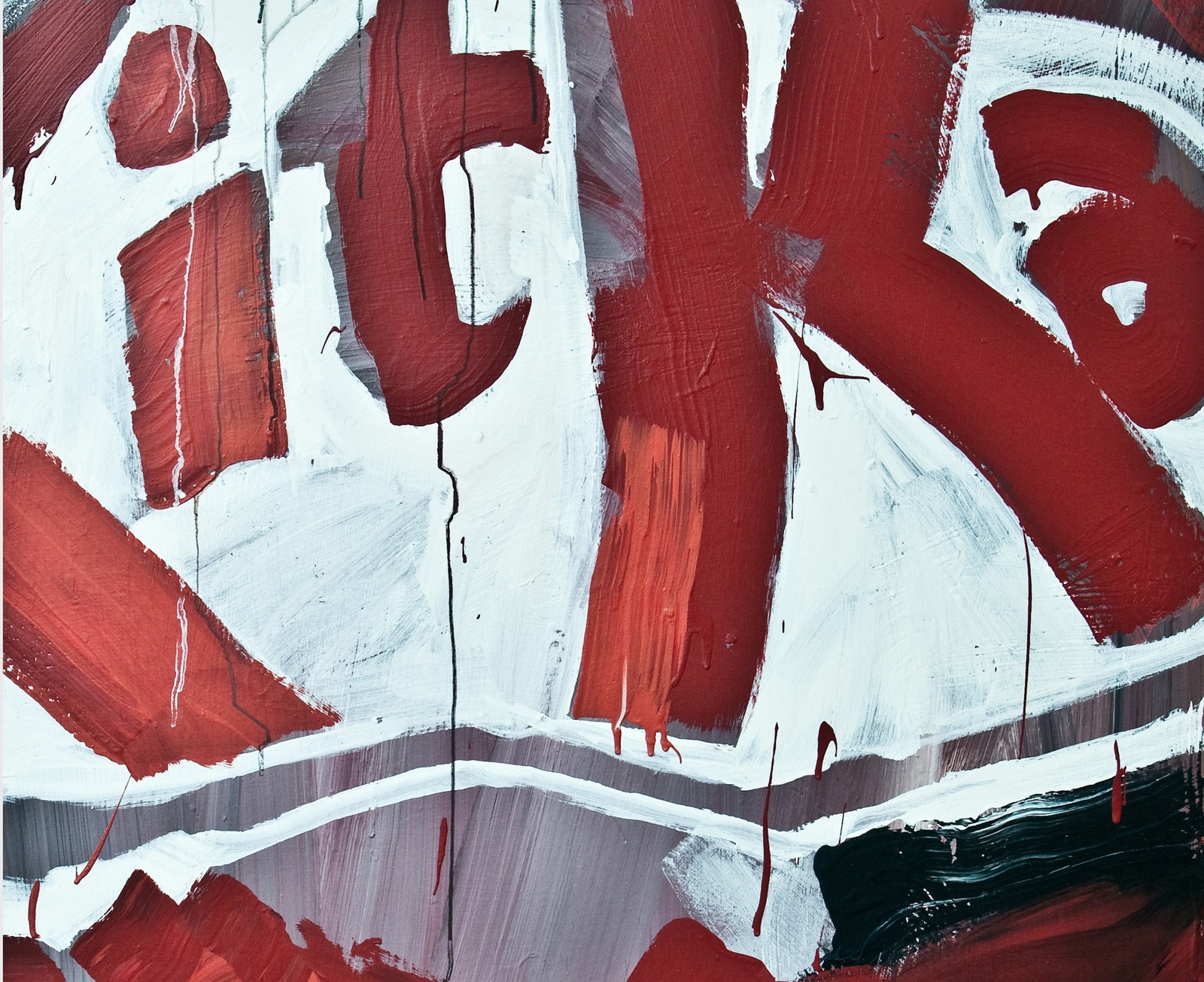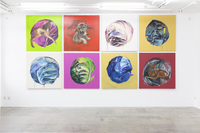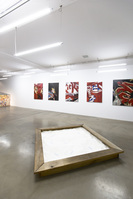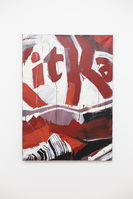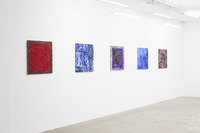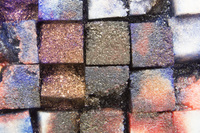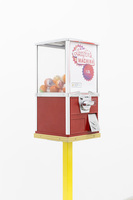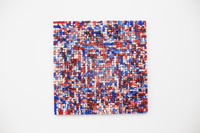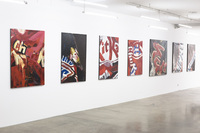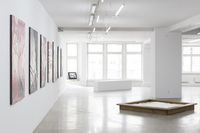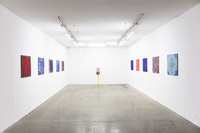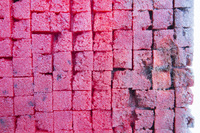„Look, there is a job for you. You’ll only need to go and say: a line, a dot; you’ll watch the beautiful bodies. That’s all. And the cash ends up in your pocket.”1
This is one of the stereotypes about an artist of Polish television format. Along with it there comes plenty of others: an artist as a freeloader, a looser, a sexist that paints female nude paintings. An artist as a rich wife who happens to have an eccentric hobby, or not serious enough and immature art practitioner. The artist figure on the television is an object of mockery and misunderstanding, and the art of painting does not deserve to be called „work”. The artist’s success is regarded to be a whim of a critic or a collector who in a magical way cashes in on artist’s talent or its lack. This is the bitter vision of the art world where everyone claims: „I can do it, too”.
These phantasms are presented by Martyna Wolna in the video found footage The Artificial Product of Culture as a commentary to the economical situation of an artist. The bitterness of notions and reality is treated with the big dose of sugar that can serve as a consolation and a promise of a short pleasure, or become a hidden enemy, an addiction, an award or punishment in the process of socialization. In the series of paintings coloured with ink Martyna Wolna relates again to the idea of an artificial product of culture. She points out at the symptomatic transgression in the area of art between artistic realizations and consumer products, a blurring category of authorship, and at dematerialization and ephemerality of a work of art itself out of which only documentation is left. The important feature of sugar as a work of art is its long expiration date, nevertheless it is not eternal. It crystallizes the criticism of the art system - a growing dissonance between an overproduction of the works, increasing number of artists, and market demands for their realizations and service. The active artistic work often turns out to be an unprofitable effort. The individual exhibition can become though a sweet solace for the bitter reality of an artist.
„Soon after painting an art masterpiece an artist went mad and down with consumption, dying in the poverty with no money in a flophouse, having the runs.”2
Martyna Wolna (1988) is a visual artist, a painter, an author of performances, objects and interventions into space. She is a graduate of Academy of Fine Arts in Gdańsk, she also studied at Academies of Fine Art in Łódź and Katowice. She received a PhD at the Fine Arts Faculty UMK in Toruń. In 2015-2016 she worked with painting animation for the film production: „Loving Vincent”, directed by D. Kobiela and H. Welchman, nominated for The Academy Awards in the category of feature-length animated film. Her works were presented at the individual and group art exhibitions, among other at CCA Toruń, BWA Jelenia Góra, The National Museum in Cracow, The Wozownia Art Gallery Toruń, The Gallery Katarzyna Napiórkowska in Warsaw. She comes from Ruda Śląska, and lives and works in Bergen, Norway.
_____________________
1 Zdrady (Betrayals), ep. 14, format dir. O. Khamidov, ep. dir. A. Maszczyńska-Bąk, prod. TAKO MEDIA Sp. z o.o. for Polsat Television Sp. z o.o. 2013.
2 Świat według kiepskich (The World According to Kiepscy), ep. 343, dir. P. Yoka, prod. ATM Group S.A. for Polsat Television S.A. 2010.
